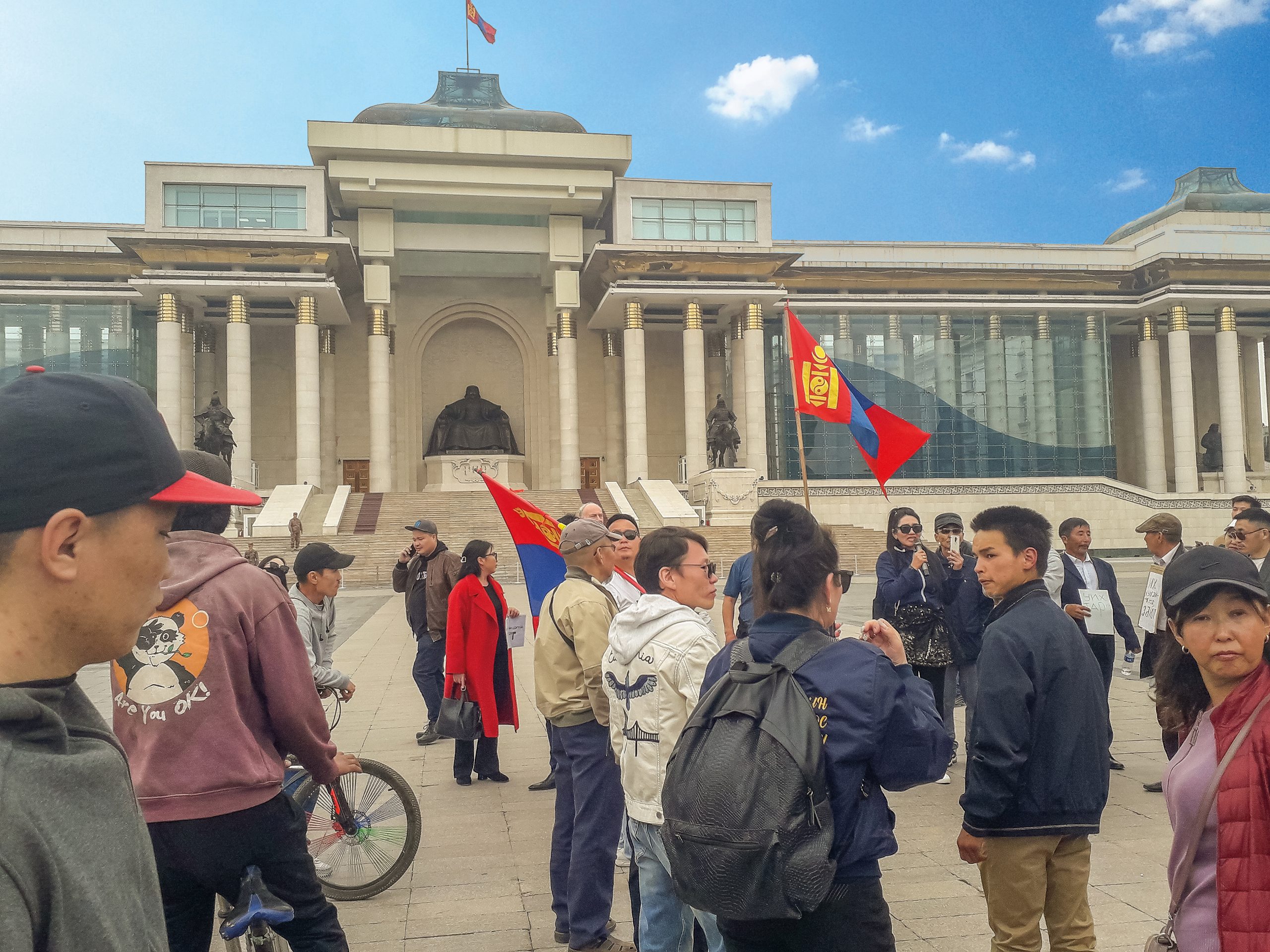Sandwiched between China and Russia, Mongolia seeks to reduce its dependence on its two neighbours. And as the people are enraged by corruption and inflation, populism grows
In Sukhbaatar Square, protesters wave Mongolian flags and shout slogans against the corruption of politicians. Behind them, the imposing statue of Genghis Khan stands on the facade of the government building, which last December was attacked by an angry mob following the most serious bribing scandal in the country’s history.
If that story involved a colossal embezzlement of public funds by officials of the state-owned company Erdenes Tavan Tolgoi, which illegally supplied China with coal, today the citizens of Ulan Bator blame the lack of transparency of the State Fund for loans to those wants to study abroad: according to an independent investigation it seems that the government has unfairly awarded scholarships to children and relatives of politicians.
“The rulers steal and we don’t make ends meet!” complains a middle-aged woman holding up a protest poster. Exasperation is growing in the country which, after the effects of the Covid-19 pandemic, is now experiencing the repercussions of the Russian invasion of Ukraine. The sanctions imposed on Moscow have an impact on Ulan Bator’s finances: from the lack of revenue on the Europe-Asia air routes to the difficulties in vital fuel imports. Not to mention the shortage of raw materials which – as Prime Minister Oyun-Erdene complained – «prevents our supplies of some everyday products».
In this scenario, impatience with the “original sin” of post-communist Mongolia increases: in the early 1990s, the transition from the socialist model (with relative economic collectivization) to a multi-party and capitalist system brought with it an undue mix between the public and private sectors, with an endemic conflict of interest at almost all levels. Today, Transparency International’s Corruption Perceptions Index ranks Mongolia 116th out of 180 countries, with 70% of citizens calling it a “big problem.”
“It is time to implement a real breakthrough in the transparency of state entities,” confirms Chinguun Otgonsuren, senior researcher at think tank Strategy Ulan Bator Academy. «People must ask for reforms, even by taking to the streets: the demonstrations of a few months ago prompted the government to make public a series of crimes and those responsible for them.
On the bureaucracy front, considerable progress has been made through the recent digital revolution. But participation remains a key theme: we must exploit the opportunities of democracy, despite the limits of our system”.
Citizens are not interested in a long-term political vision but in concrete short-term benefits
Among the most important challenges, Otgonsuren sees the fight against unemployment and economic development beyond the current model of exploitation of mineral resources, but also the overcoming of populism: «The effects of socialist culture are still being felt – he acknowledges -. In the pro-Soviet period, citizens were alienated from politics and contented themselves with having a job and the necessities of life. Even today the Mongols do not understand the profound meaning of the vote: on the one hand they have the impression that their preference does not count in the majority system, on the other they are not interested in a long-term political vision but in concrete benefits in the short term. And so populism triumphs. Even among young people? “Technology offers the new generations the opportunity to broaden their gaze and this increases their critical sense,” comments the researcher, himself 24 years old. “In general, we are not nostalgic for the socialist era, but the current problems, with the devaluation of the currency and inequalities in access to the health care and education system, lead some to ask themselves whether the past model was better after all”.
In reality, before the recent setback Mongolia – 3 and a half million inhabitants spread over a vast geographical area, wedged between Russia and China – was experiencing a surprising boom. In the last 25 years, thanks to the proceeds of resources such as coal, copper, gold, iron ore and rare earths, the country has tripled its GDP. But the inequalities are large and the unknowns important.
“Almost 90% of our exports go to China, while we import oil from Moscow,” explains Dondovdorj Bakhmunt, former economic adviser to the premier (and now mayor of the capital). “This means that we are completely dependent on the two neighboring states. And the “third neighbor policy”, which alludes to the need to create alternative relationships, must always be prudent”.
According to Bakmunth, the most strategic choice would be to develop an internal industry “that allows us to process the products to be exported here, from the mining sector to the food sector, in particular meat, up to cashmere”.
However, even in the case of fine wool which is beginning to be valued as a Mongolian excellence, “we need to focus on a limited and quality production”, given that the goats from which it is obtained, by impoverishing the land, aggravate another of the emergencies of the country: desertification. Which goes hand in hand with the need for an ecological transition, given that the massive use of coal as an energy source has made Ulan Bator one of the most polluted capitals in the world. In short, there is no shortage of growth opportunities for the country with a blue sky, but the formula for sustainable and democratic development is still being worked out.
